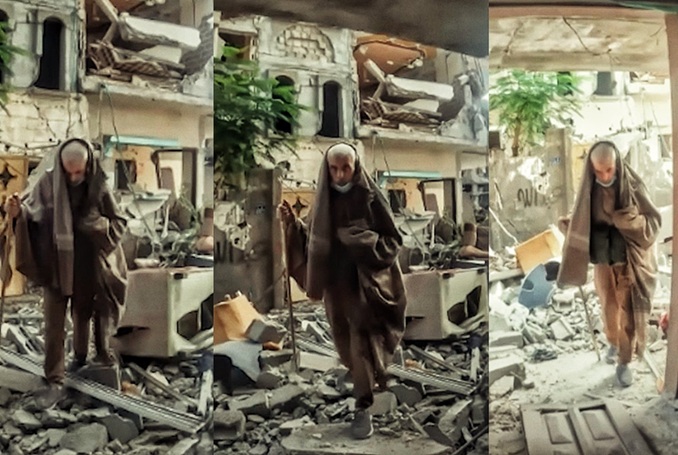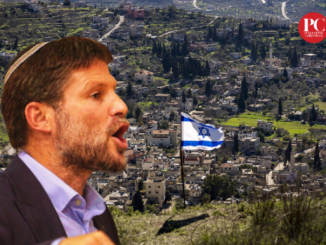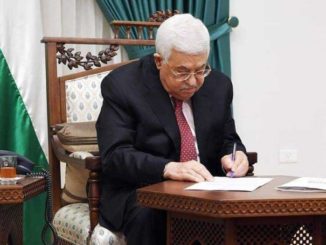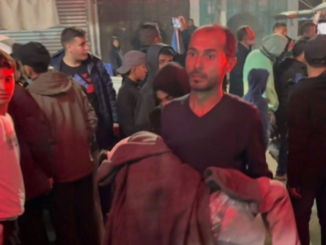
Yahya Sinwar’s recitation of Shawqi’s iconic verse in the battlefields of Palestine underscores the enduring struggle for freedom, drawing parallels between historical and contemporary resistance.
On Friday, January 24, 2025, former Hamas leader Yahya Sinwar appeared in a special episode of the “Ma Khafi A’azam” program, broadcast by Al Jazeera. He stood among his fighters on the front lines in Rafah, Palestine, his simple attire covered in the dust of battle.
As the cameras captured the moment, he repeated a famous line of poetry: “And the red freedom has a door, struck by every bloodied hand.” The verse, which resonated deeply with viewers, quickly spread across social media platforms.
This line, immortalized in the poem Nakbat Dimashq (The Tragedy of Damascus) by Egypt’s “Prince of Poets” Ahmed Shawqi, dates back to 1926. Shawqi penned it in response to the brutal French assault on Damascus during the Great Syrian Revolt.
Back then, Syria was under French colonial rule at the time, and despite the immense suffering, Syrian rebels, led by Sultan Pasha al-Atrash, fought fiercely for their country’s freedom. Shawqi’s words became a symbol of the struggle for liberty in those difficult times experienced by oppressed Arab nations.
Shawqi recited his poem during a benefit concert in Cairo’s Azbakiya Garden, organized to provide aid to the war-torn Syrians. In it, he expressed his solidarity with the Syrian resistance and honored the sacrifices of the fighters, like al-Atrash, who laid down their lives for the cause of freedom.
The famous verse, “And the red freedom has a door, struck by every bloodied hand,” reflects Shawqi’s belief that true freedom is earned only through immense sacrifice, particularly the blood of those who brave death for their homeland. His words emphasize that nations are built not through empty promises, but through the courage and blood of their defenders.
Though more than a century has passed since Shawqi wrote this poem, its meaning endures, especially in the context of ongoing struggles for freedom, like the Palestinian cause. Sinwar, a prominent figure in Palestinian resistance, is being celebrated as a leader who has embodied the essence of this line in his dedication to his people’s fight for justice and freedom.
The verse gained new life through Sinwar’s recitation, highlighting the continuing relevance of Shawqi’s words for those fighting for freedom today. It served as a reminder that liberty comes at a high cost, and it is the brave who pay the price.
"مكاني القادم بين جنود القـ،سام"
– القائد الشـ،هيد صادق الوعد يحيى السنوار(٢٠١١)
"للحرية الحمراء بابٌ..بكل يدٍ مضرجة يدق"
– القائد الشـ،هيد صادق الوعد يحيى السنوار (٢٠٢٤) pic.twitter.com/w1APgkVIHq
— ق.ض (@Qadeyah1) January 24, 2025
Below is the full translated poem of Ahmed Shawqi.
The Tragedy of Damascus (1926)
A greeting from the breeze of the Barada, gentle,
And tears that cannot be stopped, O Damascus.
The remorse of the pen and the verses,
The gravity of sorrow exceeds any description.
And memories of my thoughts, ever turning
To you, with a constant flutter in my heart.
I bear wounds from what the years have inflicted on you,
Deep in my heart, they leave their mark.
I entered you as the evening embraced its beauty,
And your face smiled with radiant features.
Beneath your gardens, rivers flow,
And your hills are full of leaves and greenery.
Around me, youthful faces shine brightly,
In them, great virtues and triumphs abound.
On their lips are poets’ words,
And in their hearts, eloquent speakers’ voices.
The narrators of my poems, wonder at the poetry,
In every corner, people recite it with pride.
I stirred their pride until the scent of lions burned,
And the fury of battle ignited.
The cry of every free soul echoed from the heart,
A cry of defiance, proud and untamed.
May God bless their news, which reached
The ear of the sovereign, shaking his resolve.
It is detailed to the world as a message,
And summarized to the horizons like a flash of lightning.
The horror of the events nearly made it seem
Like a myth, yet it is the truth.
It was said that the landmarks of history were shattered,
And that they were ruined and burnt.
Isn’t Damascus the mother of Islam,
Nurturing the roots of civilization without dispute?
The crown of Saladin, your greatest jewel,
Is unmatched, and no better symbol could adorn you.
Every civilization on earth, at its peak,
Has a lineage that traces back to your lofty heights.
Your skies are a book of the past’s adornment,
And your lands are a record of history’s finest.
You built the great state and empire,
The dust of its civilization cannot be undone.
In Syria, it has banners and weddings,
Its news resonates in Andalusia with joy.
The realms of eternity, alas, what befell them,
Is it true that they have perished? Indeed, it is true.
And are the chambers of paradise adorned,
And does its bliss match the past’s fragrant order?
Where are the marble columns of the palaces,
Ripped and torn, the curtains falling?
They were revealed, and in the thicket, there’s a fire,
And behind the thicket, chicks are being threatened.
If you seek safety through a path,
You will find death’s ways before it.
At night, amid missiles and deaths,
Behind your skies, there’s a flash and a strike.
When the steel winds rage, the horizon turns red,
And its edges darken, as the skies grow black.
Ask those who once guarded your beauty after its fall,
Where is their heart, and where is the broken stone?
For colonizers, though they may soften,
Have hearts as hard as stone, devoid of mercy.
They struck you with rage, and struck France,
The brother of war, in his pride and folly.
When those who seek justice arrive,
They say, “A group has gone out and caused a rift.”
France knows the blood of the revolutionaries,
And understands it is light and truth.
It flowed through your land, bringing life,
Like the waters of the sky, it nourished you.
A country where its youth died for it to live,
And they fell so their people could survive.
And the peoples were liberated by their swords,
So how could they be enslaved by their own hands?
O people of Syria, cast aside your hopes,
Throw away the dreams you once held.
For it is a trick of politics to deceive you,
With titles of leadership that are but chains.
How many times have you been misled by the helpless,
Just as the neck of the crucified man bends?
The openings of power emerge, then fade,
And no lasting glory comes to the divisive.
I gave advice while we were in differing homes,
But we all share the same sorrow in our hearts.
And when countries differ, we unite,
With a statement that remains unwavering and true.
You stand between death and life,
If you desire the pleasures of this world, struggle for them.
For every free soul, the homeland’s blood is owed,
An offering paid, and a debt that must be honored.
Who drinks from the cup of death,
If the free are not allowed to drink and live?
No empire is built without sacrifice,
And no rights are attained without justice.
For in the martyrs, generations find life,
And in the captives, freedom and redemption.
And the red freedom has a door,
Struck by every bloodied hand.
May God bless you, O people of Damascus,
And the glory of the East begins with you.
You supported your brother in his time of trial,
For every brother’s victory belongs to his sibling.
(Sources: Voice of Morocco, The Palestine Chronicle)









Sinwar died a noble hero. The cowards in the IDF, and the government of Wasrael would cry like babies if they faced death. Sinwar faced it like a man, for Palestine.
History will always Respect Sinwar